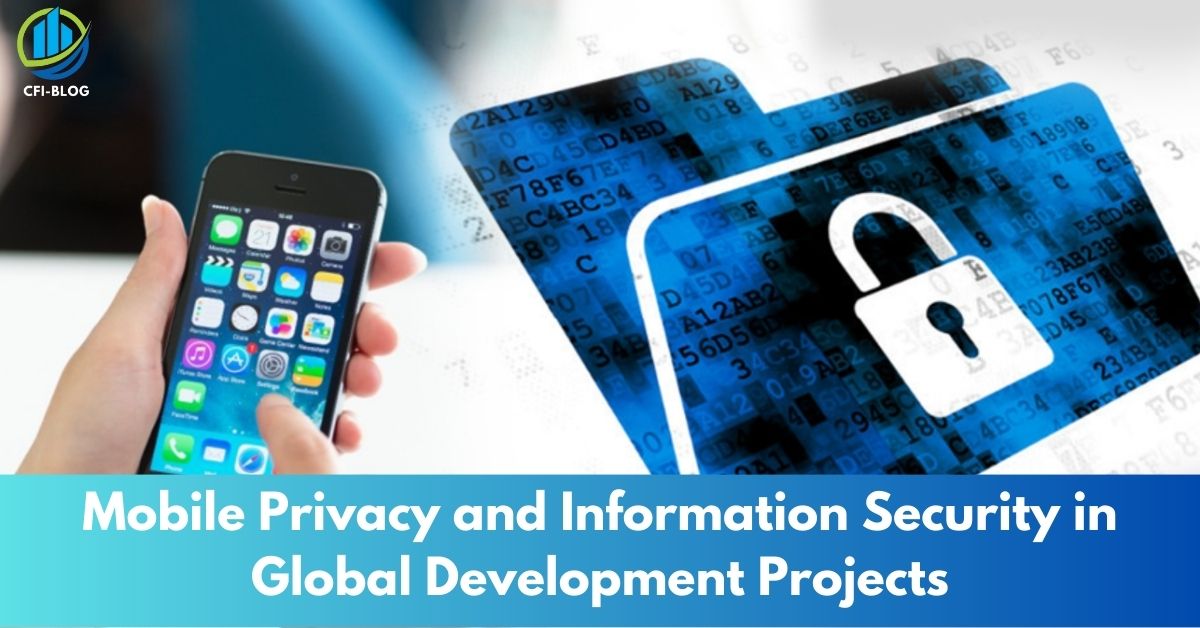We cannot deny the fact that mobile phones have become extremely important to us. From sending and receiving the money to doing official work and ordering items online, everything is done through phones.
Along with this, we also store all our data in our phones, be that your important passwords, social media accesses, photos, bank details, and basically everything that is important to us. But have you ever thought about your mobile’s privacy?
Whenever you download a new application on your phone, in order to use the application, you have to give the app access to your phone’s data like photos, location, contacts, passwords, etc.
What if someone else gets access to your phone? The intruder can have access to all your important information, from your photos to your bank details, which can be very harmful to you if he ends up misusing your data.
In this article, we are mainly going to discuss mobile privacy. We will be discussing the “Mobile Privacy and Information Security in Global Development Projects” Report in detail, which is a detailed examination of why mobile security is important and how we can improve mobile security. So now without any further delay, let’s directly dive into it.
What is Mobile Privacy and Why is it Important?
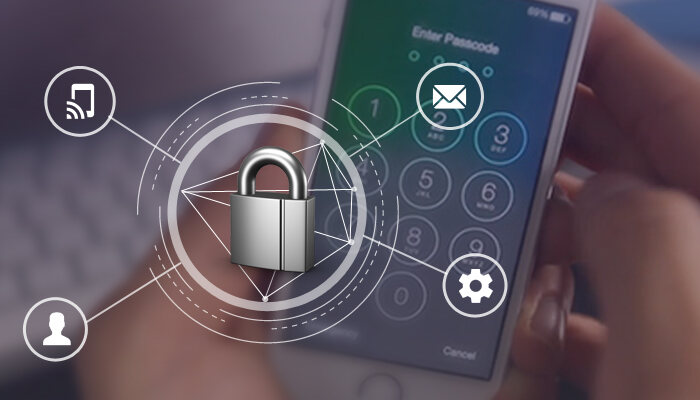
In today’s world, with the advancement of technology, fraudsters, and hackers are also getting smart. Every day, they use new ways to fraud people and steal their money and data. Even if you take proper precautions and do not share your personal information with anyone, you can be the next fraud victim. This is all because of the lack of mobile privacy.
Mobile privacy means keeping all the data of the user’s mobile safe so that no one can have access to the user’s data. These are basically the measures taken by the applications as well as the precautions taken by the mobile holder collectively to make sure that the data of the user is protected.
This is a completely proven fact that we have become reliant on our phones. We ever use mobile money transfers for financial inclusion. It can store all your information in just a small device, from your financial details to your photos. Since your phone has all your personal to financial details, its privacy becomes very important. Because if someone gets access to your data, they can use it for their benefit. You might end up losing all your life’s income in just a few seconds without even knowing about it. You might not only face financial loss but someone might also end up misusing your personal pictures and videos.
As per a study done by HP in the year 2013, 97% of mobile applications have your personal data including your address, photos, social media, and other personal details. Imagine if someone hacks the application and steals all your personal information, or what if the application intentionally sells your data to a third party?
Risks of Bad Mobile Privacy
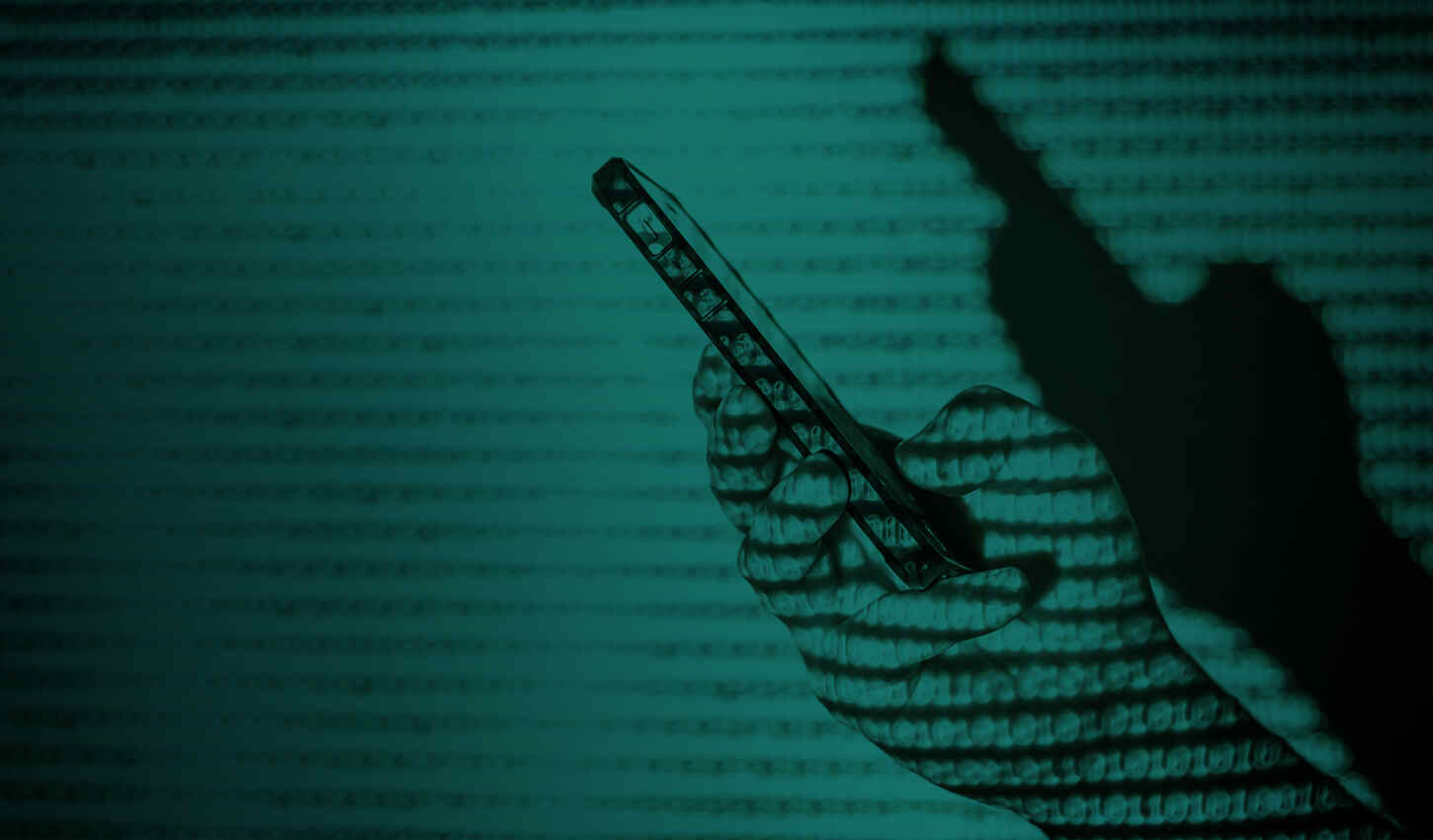
If your mobile privacy is not good, you are basically putting all your data at risk. Here is a list of some of the most common risks of bad mobile privacy.
1. Loss of Mobile Data
If the privacy of your phone is not good, the fraudster or hacker might end up hacking your phone. This might result in the loss of all the important data that you have been saving on your phone for years. This is why, it is important to keep a cloud as well as an offline backup of your data.
2. Loss of Money
If you use mobile banking or any other fintech application like Google Pay, Apple Pay, etc, then you definitely have your bank account linked to your phone or your bank account details saved up in your phone. If the hacker gets access to this information then you can end up losing your money.
3. Misuse of Personal Data
Along with your bank details, the hacker can also access your personal photos and videos. This can lead to big trouble for you if they misuse your photos and videos and upload them on some filthy websites.
4. Camera Tracking
If you use social media applications or some other application to click pictures, it means you have allowed that application to use your mobile’s camera. The problem is, some applications might keep working in the backout without you knowing about it and keep a track of your activities through the camera.
5. Location Tracking
Most people keep the GPS of their phones on. Some apps do not even work if you do not allow them to track your location. But if your current location goes into the wrong hands, it can harm you badly. Someone might adduct you or steal your phone by keeping a track of your location.
6. Malware and Virus
Another risk of bad mobile security is receiving malware and viruses on your phone. With the help of some particular apps or message pop-ups, the hackers might try to send malware or viruses to your phone. If you click on it unknowingly or by mistake, you might end up putting your data at risk.
The “Mobile Privacy and Information Security in Global Development Projects” Report
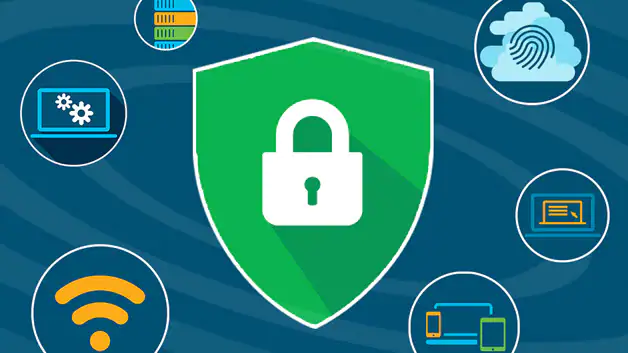
The “Mobile Privacy and Information Security in Global Development Projects” Report has been prepared by the New America Foundation’s Open Technology Institute. The main focus of this report is an information security and mobile privacy. This report discusses in detail how with the increase in the use of mobile phones, we are putting our mobile privacy at risk.
The Mobile Privacy and Information Security in Global Development Projects report also discusses how even after so many cases of bad mobile privacy and fraud, this problem is still unaddressed, and the need for proper rules and guidelines regarding mobile privacy and information security.
Along with this, the report has also given prominent suggestions and recommendations to deal with the issue of mobile privacy. Here is a list of some of the suggestions that are specifically mentioned in the report.
1. Take Care of the Surveillance
As per the report, there is a very crucial need to keep a track of the surveillance being done by the applications. Because if the third-party applications keep the user’s phone under surveillance, they can ultimately have access to the user’s location and other data.
2. Facilitation and Promotion of Transparency
In order to gain the trust of users, it is very important to promote and facilitate transparency. This can only be done by the applications by making sure that it is clearly mentioned in their terms and conditions regarding what data they would be using and if they will be sharing that data with any third party or not.
3. Limited Collection and Use of Data
Various apps do not work if you do not allow them to have access to your photos, camera, location, etc. This needs to be limited. For example, if there is any particular application that does not need a location, then it must not ask the user to allow the app to keep a track of their location.
4. Take Care of the User Feedback
While using particular applications, they ask for your feedback and rating. Even though apps ask for users’ feedback, they fail in implementing the feedback. They need to take the honest feedback of the customers seriously and implement them.
What Can We Do to Increase Mobile Privacy?
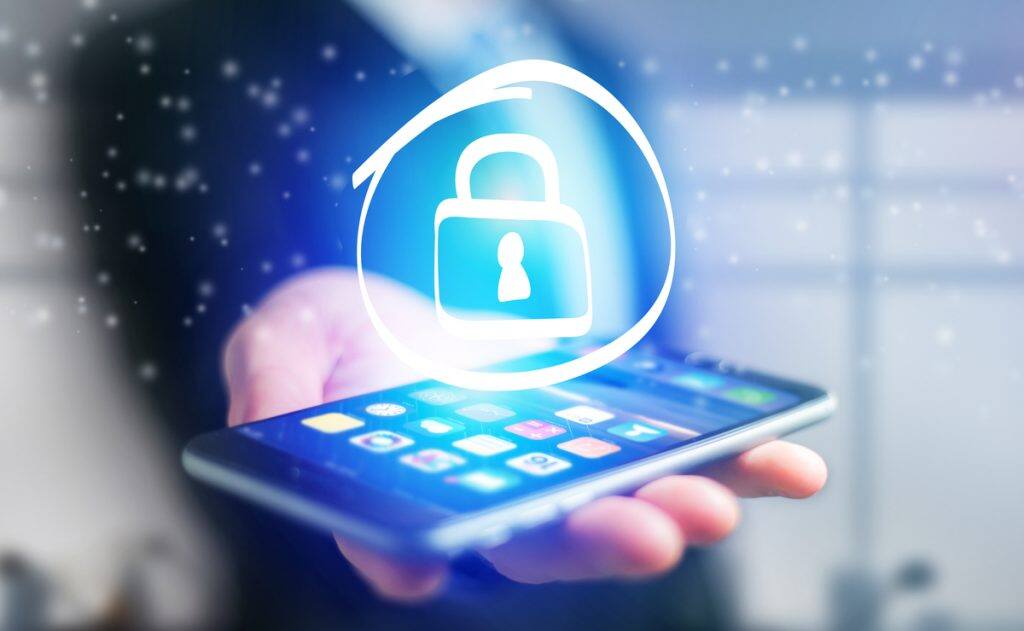
Taking care of mobile privacy is not only the job of apps, but it is also our responsibility to take care of our mobile’s privacy and security. After all, our phone stays in our hands, so it becomes our responsibility to read every pop-up and every message properly and then only allow any certain action upon it.
Here are some of the things that we can do to increase our phone’s privacy:
1. Encrypt Your Data
The most important factor to increase your mobile’s privacy is encrypting your phone’s data. This protects the data of your phone and stops the apps from having access to your data without your permission. Moreover, if your phone is encrypted, you can find it easily even after it has been lost or stolen.
2. Manage the App Permissions
Whenever you download an app on your phone, you have to provide it with various permissions like location, contacts, photos, camera, etc. But whenever you are not using the particular app, you can disallow unnecessary permissions. Moreover, you can also select to use particular functions only while using the app.
3. Keep a Strong Phone Lock
Whenever we set a password on our phone or laptop, we usually keep a simple password like our date of birth, name, etc. But these passwords are very easy to guess. So it is very important to you keep your phone secured with a strong password so no one can have access to your phone.
4. Keep Deleting the Old Applications
Even though you have not used any particular app for years, that might still have access to your phone’s data and it might even be tracking all your activities. So make sure that you keep deleting the old applications from your phone. It will increase your mobile security as well as save up space on your mobile.
5. Use Mobile Tracking Services
If you are someone who keeps forgetting their phone here and there then it is better to use a mobile tracking app or service that keeps a track of the location of your mobile phone, even when it is switched off. If you are an iPhone user then you can use find my device. For Android users, other mobile tracking services are also available.
6. Use Security Increasing Apps
You can easily find apps that will help in increasing the security of your phone. You can use such apps to boost your phone’s security. But make sure that you only use good and authentic applications otherwise you might end up losing all your data.
7. Keep Your Device Updated
Last but not the least, make sure that your device is always updated. Because with every update, the security of your phone increases. Also, make sure that you keep checking if your operator has launched any new updates so that you do not miss any chance to increase your mobile privacy.
Frequently Asked Questions (FAQs)
Q1. What are the 5 C of cyber security?
The five C’s of cyber security are:
- Change
- Compliance
- Cost
- Coverage
- Continuity
These 5 C’s signify the 5 important areas of cyber security that every organization must focus upon.
Q2. How can we improve mobile privacy?
Here are some ways how we can improve mobile privacy:
- Manage the permissions of your phone.
- Keep your device updated.
- Make sure that you have a backup of all your data.
- Encryption of all the data and apps.
- Strong passwords on phones and tablets.
- Be aware of all the notifications and pop-ups that you are clicking on.
Q3. What are the major highlights from the mobile privacy and information security in global development projects Report?
The mobile privacy and information security in global development projects report highlight the importance of information security and mobile privacy. As per this report, there is a strong need for proper rules and guidelines to improve mobile privacy. Along with this, this report has also given some recommendations to increase phone privacy like taking care of surveillance, facilitating and promoting privacy, limiting the use of personal information, etc.
Conclusion
To summarize it all, even though we are dependent on mobile phones for a lot of things, mobile privacy is still a big concern. There is a need for a separate regulation and its proper enforcement to make sure that all the data of users is protected and there is no infringement of privacy.
Author Profile

- Jonas Taylor is a financial expert and experienced writer with a focus on finance news, accounting software, and related topics. He has a talent for explaining complex financial concepts in an accessible way and has published high-quality content in various publications. He is dedicated to delivering valuable information to readers, staying up-to-date with financial news and trends, and sharing his expertise with others.
Latest entries
 BlogOctober 30, 2023Exposing the Money Myth: Financing Real Estate Deals
BlogOctober 30, 2023Exposing the Money Myth: Financing Real Estate Deals BlogOctober 30, 2023Real Estate Success: Motivation
BlogOctober 30, 2023Real Estate Success: Motivation BlogOctober 28, 2023The Santa Claus Rally
BlogOctober 28, 2023The Santa Claus Rally BlogOctober 28, 2023Build Your Team – the Importance of Networking for Traders
BlogOctober 28, 2023Build Your Team – the Importance of Networking for Traders

